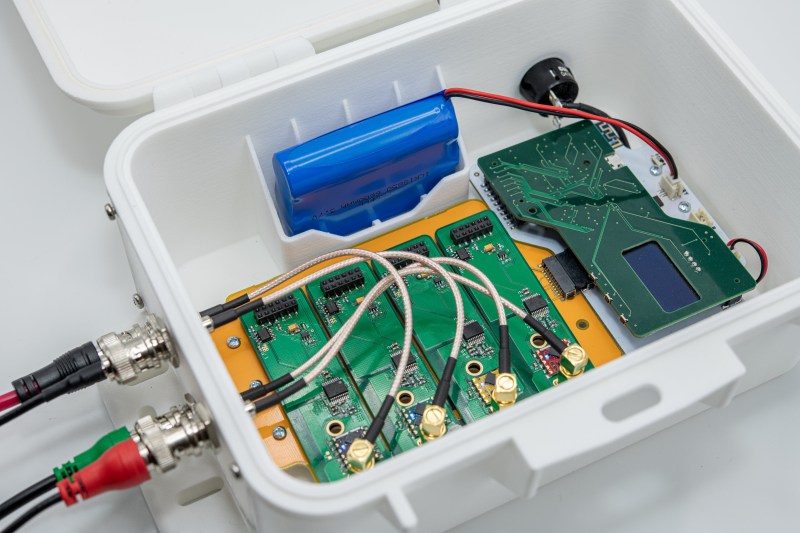We caught up with Shah Selbe and Jacob Lewallen the morning after their project, FieldKit, won the Hackaday Prize. FieldKit is an open-source field-based research data collection platform. Which is basically a lot of fancy words for saying it’s a system for collecting sensor data in the field without being snagged by the myriad of problems associated with putting electronics in remote locations. It’s a core project of Conservify, a non-profit organization that seeks to empower conservation research.
As grand prize winner the FieldKit project was awarded a $125,000 cash prize, which Shah and Jacob say is transformative for a non-profit pursuing technology research and development. It seems the grant process has not evolved to embrace developing electronics, while opportunities for research projects have begun to involve recording large data sets in order to test a hypothesis. This is where FieldKit truly shines. Their vision is to provide a low-cost and extensible system that other researchers can use to collect data while making their own grant dollar go much further.
FieldKit is modular in nature. At the center is the core board that hosts the microcontroller, radio, GPS, and power circuits. Headers connectors allow for a range of sensors and expansion modules to easily be swapped in and out depending on the user’s needs. Currently the team has proven modules for measuring water quality, water level, and weather data. The collected data is stored locally until the user comes around and downloads it to their smartphone by way of the WiFi access point built into the station, but the team is working on a LoRa radio module for long-distance access. The project also includes plans for a data sharing and visualization web interface for scientists who wish to make their data sets available.
The hardware has been refined thanks to the team’s first-hand experience setting up numerous large sensor networks in the field. The knowledge gained in each of those endeavors has been rolled into FieldKit so that other researchers can benefit.

A reliable, well-tested platform has the potential to greatly reduce the cost of at-scale sensing by moving away from the traditional paradigm of building a custom device for each research project. At the very least, it reduces the cost and complexity of custom hardware, as the majority of the system — the enclosure, power supply, data storage and transfer — can be standardized, and the only custom work is the sensor itself if a suitable module doesn’t already exist. Even the enclosure has been designed to minimize the amount of work necessary when adapting it for different sensor payloads.
The information age has put amazing data processing power at our fingertips. But the scientific method still demands a high bar in carefully collected observations before we can put that processing power to good use. A scientist shouldn’t also have to be an electronics engineer to carry out their studies. FieldKit seeks to bridge the divide and boost the effectiveness of every researcher and every dollar spent setting up a research project. We hope that taking the top spot in the Hackaday Prize has energized the team as they continue their quest to make conservation research available to all.
There were five other top winners named and five honorable mentions in this year’s Hackaday Prize. You can see the excitement and hear from those project designers during the Hackaday Prize Ceremony:



















Hey FieldKit, Lets talk.
https://hackaday.io/project/167520-pulse-building-smart-devices-the-simple-way
https://pycno.co